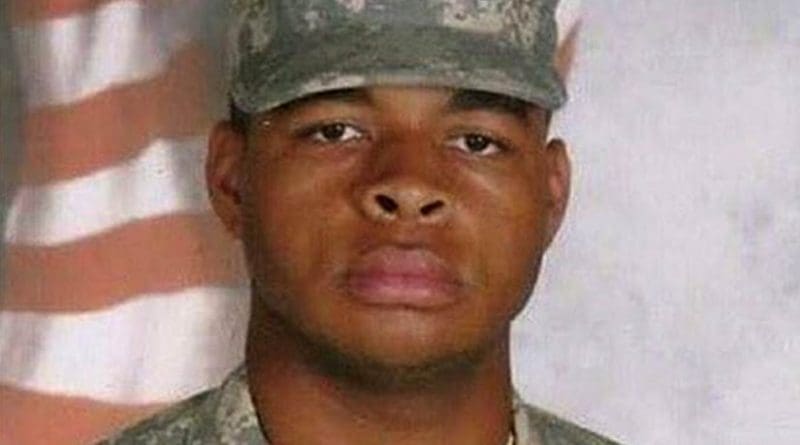Investigators Insists No Links To Terror Groups In Dallas Shootings
By VOA
By Jeff Seldin
Senior U.S. officials Friday tried to downplay concerns that the deadly Dallas shooting, which killed five police officers, was linked to any wider plot, even as some groups condemned the violence as domestic terrorism.
“It is my understanding that investigators have now publicly ruled out the possibility that the individual who carried out this terrible act of violence had any sort of connections to terrorist organizations, either in the United States or around the world,” White House spokesman Josh Earnest said while briefing reporters in Warsaw, Poland.
Later at a news conference in New York, Homeland Security Secretary Jeh Johnson said the shooter had “no known links or inspiration from any international terrorist organization.”
The suspect in Thursday’s attack, identified by investigators as Micah Xavier Johnson, was killed by police. Two other men and a woman were in police custody, though they had not been identified.
So far, Dallas police and the U.S. Justice Department have refused to classify the attack. Police said only that it was a “well-planned” ambush.
Despite the government’s caution, the Southern Poverty Law Center, a civil rights organization dedicated to fighting hate and bigotry, was unequivocal in its condemnation of the Dallas shootings.
“This was an act of domestic terrorism,” SPLC President Richard Cohen said in a statement Friday. “We must not allow this act of violence to lead to more violence and more hate.”
The SPLC also said Friday that the suspected shooter was a fan of what it sees as black separatist hate groups — including the New Black Panther Party, the Nation of Islam and the Black Riders Liberation Party — liking them on Facebook.
Adding up the evidence
But whether the U.S. will officially label the Dallas shootings as domestic terrorism is not clear.
“The government will be looking at which charges are likely to get a conviction,” said William Yeomans, a fellow in law and government at American University Law School in Washington. “They’ll be looking at what the evidence warrants.”
Yeomans, who spent 26 years as a U.S. Justice Department attorney, said pursuing terrorism charges often depends on the intent of those perpetrating the violence.
“The Paris shootings, for instance, would be classic terrorism, or probably San Bernardino, where you attack the civilian population to terrorize the civilian population, to make it afraid, and you do it to serve some political or other objective,” he said.
But another crime that inspired terror, the shooting deaths of nine African-American churchgoers in Charleston, South Carolina, last year, was treated not as terrorism but as a hate crime.
“That seemed very clearly to be racially motivated and to be a civil rights violation,” Yeomans said.
The accused shooter, a white man named Dylann Roof, was said to have written about his contempt for blacks, Jews and Hispanics on the internet, and a friend told police that Roof talked about starting a civil war.
Though it’s rare, U.S. officials could decide to treat a case like the Dallas shootings as both domestic terrorism and a hate crime, Yoemans said, noting the type of charges the government decides to pursue can have a wider, political impact.
“In the popular mind, it can send different messages,” he said.

